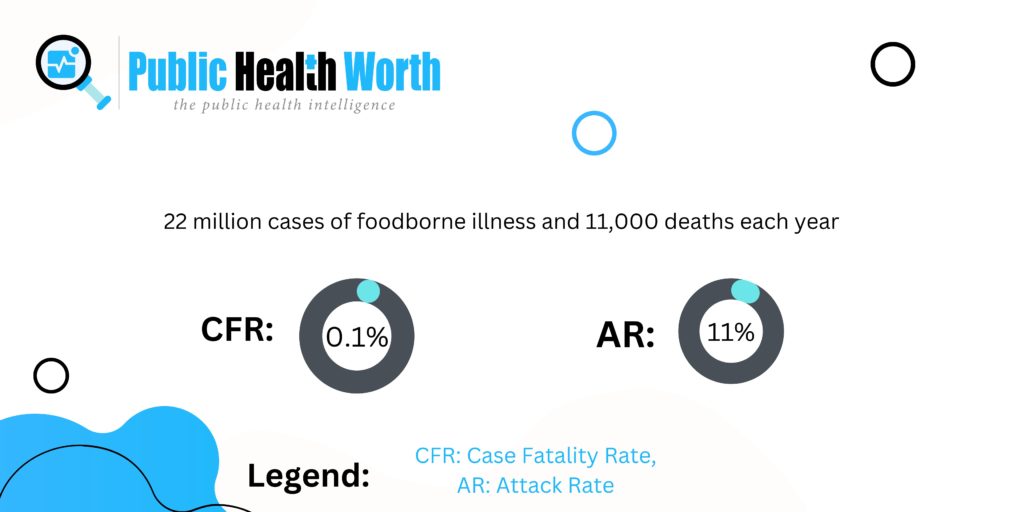On a sunny day, as I walked down my street, the aroma of street food wafted through the air and tantalized my senses. Tempted to stop and try a plate, the sounds of Styl Plus’ Iya Basira from their 2006 album Expressions brought me back to reality.
Street food, also known as roadside food, is a popular option for many Nigerians who are in a rush, on a tight budget or seeking a quick and tasty meal.
Despite its popularity, there are health concerns surrounding street food in Nigeria. In this article, I will examine both the benefits and drawbacks of street food, as well as the public health risks associated with it. Additionally, I will explore alternatives to street food and offer tips on making healthy choices when opting for street food.
One of the major benefits of street food in Nigeria is its accessibility. With a population of over 200 million and a growing urban population, Nigeria presents a huge market for street food vendors, according to the World Bank

Roadside food vendors always offer a delicious and satisfying meal, whether you’re stuck in traffic, running errands, or just want a quick and easy meal. From fried plantains at small kiosks to hot shawarma, jollof rice, and chicken from mobile food trucks, there’s a variety of options to suit everyone’s taste and budget.
Affordability is another advantage of roadside food. With a poverty rate of 40.1% according to the National Bureau of Statistics, Nigeria provides a great market for street food vendors who offer meals at a fraction of the cost of sit-down restaurants, making it accessible to a wide range of people, including those living in poverty.

However, there are also many disadvantages to street food. One of the biggest concerns is the hygiene and sanitation of the vendors and their equipment. According to the World Health Organization (WHO), many street food vendors operate in unsanitary conditions, with little or no access to clean water or proper sanitation facilities. This can lead to the spread of foodborne illnesses (food poisoning) and other health problems derived from these under-listed causal organisms; Salmonella typhi, Toxoplasma gondii, Listeria monocytogenes, Norovirus sp and Campylobacter sp to name a few.

In Nigeria, foodborne illnesses are one of the leading causes of morbidity and mortality, with an estimated 22 million cases of foodborne illness and 11,000 deaths each year. Yearly, the Case Fatality Rate (CFR) – the proportion of people who have died from a specified disease among people who have been diagnosed is 0.05%, while the Attack Rate (the frequency at which an event occurs) stands at 11%.

Another concern is the quality of the ingredients used in roadside food. According to the National Agency for Food and Drug Administration and Control (NAFDAC), many street food vendors use low-quality ingredients that are often not fresh or properly stored. This can lead to food spoilage and contamination, which can cause serious health problems if consumed.

Additionally, there is also the issue of food preservation, as many street food vendors do not have the means or knowledge to preserve the food properly, which can lead to food spoilage and contamination, and also the lack of proper temperature control can allow the growth of harmful microorganisms. There are a number of microorganisms that are responsible for food spoilage, diseases and infections. Such microorganisms are known as harmful microorganisms, according to BYJUS.
In terms of public health, roadside food can be of significant concern. Foodborne illnesses can spread quickly and easily, especially in crowded areas where street food vendors are often located. Majorly, there is a huge concern for vulnerable populations such as young children, pregnant women, and older adults, who are at a higher risk of serious health problems from foodborne illnesses.
In order to make healthy choices when it comes to roadside food, it is important to be aware of the risks and to take steps to minimize them. One of the best ways to do this is to choose vendors who operate in clean and sanitary conditions, and who use fresh and high-quality ingredients. Additionally, it is important to be mindful of food preservation, making sure that the food is properly stored and at the correct temperature.

In conclusion, while roadside food in Nigeria can be a convenient and affordable option, it is important to be aware of the potential health risks and to take steps to minimize them. By choosing vendors who operate in clean and sanitary conditions, using fresh and high-quality ingredients, and being mindful of food preservation and storage, it’s possible to enjoy the delicious and satisfying meals offered by street food vendors while minimizing the risks of foodborne illness. Another alternative to consider is to make your own “street food” at home, this way you have control over the ingredients, preservation, and sanitation. The world is at our palms, you can always binge on YouTube videos showing the Do It Yourself (DIY) of Sharwama, Jollof Rice, Suya etc.
Youtubers like Diary of A Kitchen Lover, Zeelicious Foods, Flo Chinyere, Chef Lola’s Kitchen and Naija Food Tube are top food content creators who have made it a premium thing to teach their subscribers on how to make delicious meals.
This is a great way to ensure that you are eating healthy and nutritious meals, and it can also be a fun and rewarding experience.











